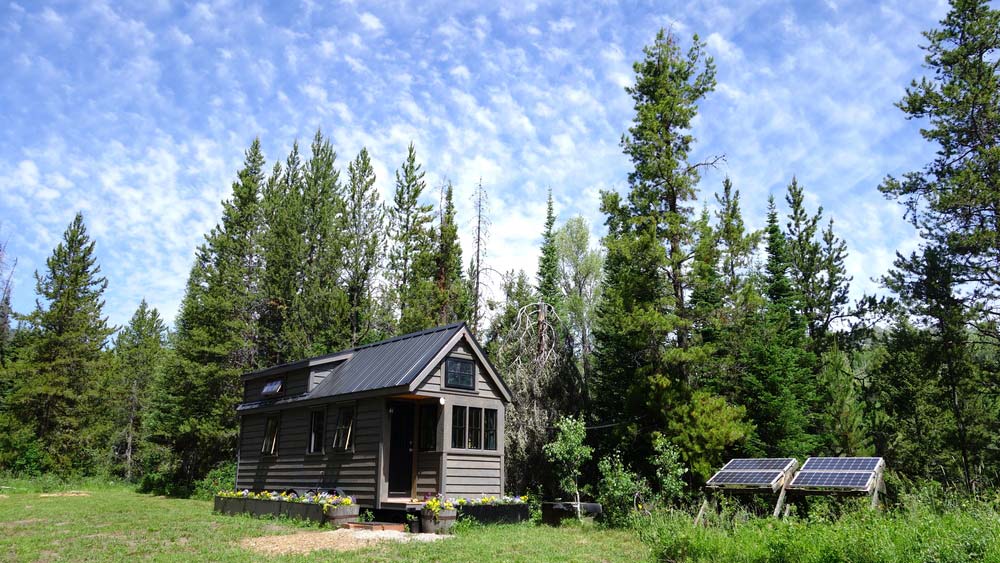
Ariel Celeste Photography / Shutterstock.com
Note: This post was submitted to Student Caffé by Keilah Keiser. We would like to thank her for her submission and credit her as the author of this blog post.
For many people, living off-grid has a tendency to evoke a Wild West imagery of end-of-the-world preppers stocking up on MREs and ammo, survivalists hiding out in a remote underground bunker, neanderthal-like humans digging for mushrooms, or perhaps criminals attempting to elude capture.
Off-the-grid living is a foreign concept, especially in our digitally connected age, so it’s no surprise that most people think of the aforementioned descriptions. Yet, the reality is far different from the perception. Under the umbrella of off-grid, you’ll find homesteaders and preppers, hippies and farmers, homeschoolers and college graduates. Living off the grid is an alternative lifestyle and an incredible way to experience another side of life—one that’s not too far removed from our ancestral past. And in doing so, many people find a sense of reward that isn’t obtained conventionally.
At its core, “going off the grid” means living a self-sufficient lifestyle free from the use of the government’s and society’s products and services. People go off-grid for all kinds of reasons. Arguably, the biggest one being the pursuit of a less stressful and more disconnected life, but there’s a lot more to it than that—including a lot of hard work. In doing so, off-grid living teaches you skills that are harder to acquire through a modern way of life, some of which include:
- Self-sufficiency
- Preparation
- Environmental responsibility
- A healthier lifestyle
- A smaller footprint
- Knowledge of preservation
- How to get back to our roots
As society puts more and more emphasis on living a green and sustainable lifestyle, going off-grid can sound highly appealing, but learning where and when to start considering this alternative is a challenge in and of itself.
For those looking to dabble in off-grid living, WWOOFing is a great place to start. WWOOF, or World Wide Opportunities on Organic Farms, is a hospitality service operated by a loose network of national organizations that facilitate homestays on organic farms. This program is a great way to dip your toes in the waters of homesteading and off-grid living, particularly because you can work out a long- or short-term commitment in your home country or abroad. As a volunteer you live alongside a host, handle daily tasks, and experience life as a farmer.
If you’re looking to experience off-grid living specifically in the United States, there are some unique, well-known, and innovative communities throughout the country. The resource below highlights 10 of the top picks for off-grid and sustainable communities. To give you a better understanding of what to expect, each location is evaluated based on three criteria: how eco-focused, how accessible, and what amenities are offered. These ratings are represented by symbols within the guide to simplify your research. Since the communities are spread out from coast to coast, this also takes into account the weather and the best times to visit—a great way to test out off-grid living while determining if it’s the right lifestyle choice for you. To learn more about these communities read on.
-
What Freshmen Should Know about Dating in College
-
Where to Find the Best Dorm Deals for College Students
-
Thought-Provoking Books to Read this Summer
-
Shorter Than Your Textbook: A Quick History of Independence Day
-
Eight Myths about Sexually Transmitted Infections (and What’s Actually True)
-
Grocery Shopping for Finals Week: Food to Keep You Full and Focused
-
How to Stay Safe during Your New Year’s Eve Celebration
-
Why You Should Make an Effort to Drink More Water
-
How to Conserve Energy in Your Dorm Room
-
Finding Help for Alcohol and Drug Addiction: Where to Start and When to Reach Out


